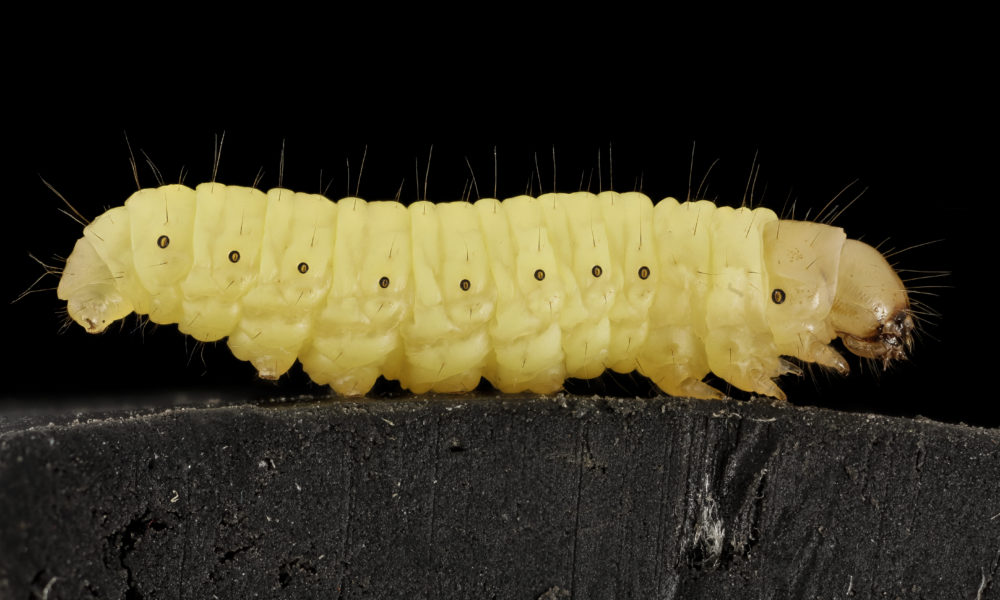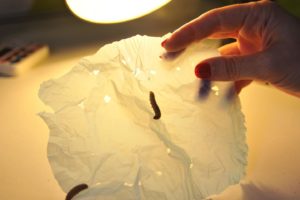
A Humble Worm Helping to Solve the Plastic Crisis
In the quest to solve the plastic pollution crisis, organizations of all types are working on solutions. The Good Times has highlighted a few on these pages in the past, such as the Ocean Cleanup removing plastics from the Great Pacific Garbage Patch, the Aquapreneur Innovation Initiative to remove microplastics from water, bacteria that have developed a taste for plastics, and even fungi that break down plastic.

Wax worm decomposing a plastic bag – Credit: CSIC Communications Department
A recent but accidental discovery is that of the wax worm, which has a certain enzyme in its saliva that breaks down plastic quickly compared to the 100-400 years that polyethylene, a particularly hard and durable plastic, takes to break down naturally.
Federica Bertocchini, a beekeeper and researcher at the Spanish National Research Council (CSIC), was working with her bees at home and cleaning the panels that were infested with the worms when she made the discovery. Wax worms (Galleria mellonella) feed on the honey and wax in the hives. Bertocchini removed the worms from the panels and stored them in a plastic bag. Soon after, she discovered holes in the bag and that the worms had dispersed throughout the room. “This worm is capable of biodegrading polyethylene, one of the toughest plastic materials that exists, and which is used to make shopping bags and food packaging, amongst other things,” says the CSIC.
“We have carried out many experiments to test the efficacy of these worms in biodegrading polyethylene. 100 wax worms are capable of biodegrading 92 milligrams of polyethylene in 12 hours, which really is very fast,” said Bertocchini in the article. “Following the larva phase, the worm wraps itself in a whitish-coloured cocoon or chrysalis. The researchers also discovered that by simply having the cocoon in contact with polyethylene, the plastic biodegrades.”
This great advancement adds another solution to the arsenal of ways to address the plastics that are already polluting the world, as people move to efforts to produce less and recycle more.

